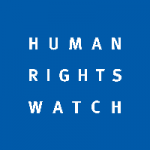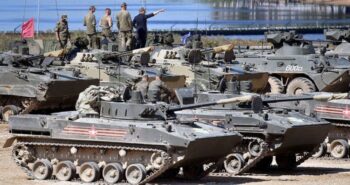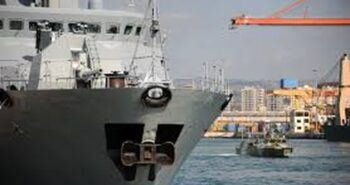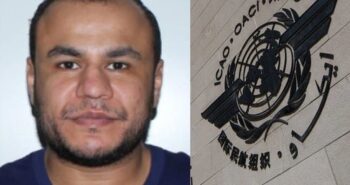By Hiba Zayadin
 Between September and November 2019, Black Shield Security Services recruited more than 390 Sudanese men who thought they were coming to work as security guards in the UAE.
Between September and November 2019, Black Shield Security Services recruited more than 390 Sudanese men who thought they were coming to work as security guards in the UAE.
.PART TWO
An article in the UAE’s official news agency’s website in 2017 does not mention his military title. The Sudanese migrant workers identified another person who may be involved: Brigadier General Masoud al-Mazrouei who is mentioned in Yemeni newspapers in 2017 and 2018 as deputy commander of the Emirati Forces and a commander of the Allied Operations in Aden.
Five different migrant workers, interviewed separately, saw his photo and recognized him as one of the company representatives. Three of them identified him by name as the same Masoud al-Mazrouei who at one point introduced himself to them as deputy director at Black Shield.
“There was a real secrecy around telling us what the nature of our job really would be,” said “Malek,” a 24-year-old Sudanese university graduate who told us he chose to pursue work in the UAE because of a dire economic situation in Sudan that had left many of the country’s youth unemployed.
“They [the men in charge of their training and of the Ghiyathi camp] wouldn’t give us clear information though, even when we asked direct questions about why we were in a military camp for example, and what this had to do with our work as civilian security guards.”
Several of the Sudanese men mentioned asking those responsible at various times about the nature of the work and the military training, only to be told either that they were only in charge of their training and knew nothing else, or that there was nothing to worry about and this was just standard training.
Two things slightly placated the men’s skepticism and unease.
First, a Sudanese man who introduced himself as their training supervisor served as their liaison with a company whose representatives were otherwise nowhere to be seen.
He would reassure them again and again that, despite being trained militarily and donning military uniforms, they would work as security guards for a privately-owned company.
Second, a few weeks after their arrival in the UAE, the company issued the men residency permits, bank cards, and health insurance cards, and had them sign contracts that explicitly said they would work as security guards within the emirate of Abu Dhabi.
None of those interviewed were given copies of their contracts, and just a few managed to snap pictures of them using their phones.
One man said it was the worry they would lose their jobs – some, without having earned back the money they paid in recruitment fees to secure the jobs – that discouraged some of the men from probing too deeply and demanding clear and direct answers.
As migrant workers in the UAE, the Sudanese men were governed by an exploitative foreign labor governance system which gives employers excessive control over workers.
Migrant workers’ ability to speak up is often constrained by dependence on the company for their livelihood and accommodation some of them said, their passports being confiscated, and fear of retaliation, including arrest and deportation.
On January 20, about four months after the first Sudanese recruits arrived, the men said a company representative finally came to meet the men.
Masoud al-Mazrouei, dressed in civilian clothing, introduced himself as deputy director of Black Shield and congratulated the men on successfully completing the training.
Al-Mazrouei refused to disclose where they would be posted, leaving the men with more unanswered questions.
Five of the men interviewed said they understood they’d be sent to guard infrastructure and facilities critical to the UAE inside or outside the country; four understood they’d guard such facilities inside the UAE, and at least five said al-Mazrouei’s response was unclear when asked whether they’d be posted in Yemen or Libya.
When some of the men voiced concerns about being sent to an undisclosed location, they said al-Mazrouei offered to double their wages from the 1,840 Emirati dirhams (US$500) per month stipulated in their contracts to 3,680 Emirati dirhams ($1000).
“We kept asking about the actual locations, but he still refused to tell us,” said “Naji,” 33. “And I thought if he was not willing to trust me with this information, how are you trusting me to go guard such a sensitive location, I didn’t want to go through with it.”
Naji and a little over 100 men refused to work, asking that they be sent back to Sudan. Amer, Malek, and around 270 men accepted. “I am the eldest among my siblings and I’m responsible for my family,” Amer said when asked why he agreed to go without knowing the location.
“When I left Sudan [for this job] I resigned from my job as an employee. Now it’s extremely difficult to find another job.”
Following their meeting with al-Mazrouei, Black Shield divided the Sudanese migrant workers into two groups. Over the next two days, the men who had consented to continue working said they traveled by bus to a military base near Abu Dhabi.
From this point, they wore non-camouflage uniforms with the letters CNIA printed on them, which stands for Critical National Infrastructure Authority, a government entity which protected the UAE’s borders and oil fields and was absorbed by the armed forces in 2012.
Neither their phones nor their passports had been returned. They said they embarked on what they described as a large military cargo plane accompanied by two men from their compound clad in Emirati military uniforms and the plane crew, also in military uniform.
“The pilots said they can’t tell us where we are going,” said Naji. “Once in the air, one captain said we will take around five hours to land. This is where we got really nervous about where we were actually being taken.”
Five and a half hours later, the men said they arrived at the military airbase in the desert where they saw the water bottles and realized they were in Libya.
“It was cold and humid, it felt like it was near the sea,” said Naji. “The airbase was filled with military planes and weaponry,” Amer said. “It was small and almost everyone there was Emirati.” Human Rights Watch could not determine the precise location of the first airbase.
The men said the Emirati men in military uniforms who came with them from the UAE told them they would travel 50 men at a time in a smaller plane to their final destination – a journey the men said took around 1.5 hours.
From that point onwards, the men said no Emiratis joined them. Over the course of the next day, the men, in groups of 50 or less, boarded a military transport aircraft and headed towards Ras Lanuf.
The men began to arrive at an airstrip in Ras Lanuf where they said they were met by armed Libyan fighters, loaded onto pickup trucks, and taken to a military compound around 15 kilometers from Ras Lanuf’s oil port.
The pickup trucks had an insignia plastered on them that Human Rights Watch later identified in pictures as that of General Hiftar’s Libyan Arab Armed Forces’ (LAAF) Unit 302, a special forces group also known as al-Saiqa (Thunderbolt).
“There were blocks of housing that looked damaged, as if there had been fighting there,” said Naji of the compound. “We found cars destroyed and ammunition strewn across the grounds, it looked like a battlefield,” said Amer.
Sometime after the last group arrived, the men said a Libyan member of the LAAF brought them their previously confiscated phones, which they soon realized could not be used to make international calls or access the internet.
The Libyan man told them their mission was to guard the surrounding oil fields. “The Libyan fighters treated us horribly, they would push us with their weapons, and try to provoke us and terrorize us,” said Amer. “We couldn’t get in touch with anyone and we were afraid that if we did anything wrong, they would kill us or hurt us. So we all stayed silent and tried not to put ourselves in danger.”
Since at least 2014, the UAE has provided sustained military support to General Hiftar’s eastern-based LAAF, one of two major Libyan parties to the conflict.
Over the past few months, two reports alleged that UAE-based private companies were used to transport military supplies or personnel to Libya in support of General Hiftar’s forces, apparently unrelated to Black Shield.
In April 2020, they claimed that at least two UAE-based companies had shipped nearly 11,000 tonnes of jet fuel to General Hiftar’s forces.
In May 2020, Bloomberg news service reported on a confidential UN report that alleged there had been a short-lived mission in which a group of foreign fighters reportedly linked with Dubai-based companies was briefly deployed to Libya under the guise of coming to guard the oil and gas facilities.
The mission was apparently aborted after disagreements on equipment used by the team.
This mission, too, was short-lived.
On January 26, after one of the Sudanese men in Libya managed to tell his family back in Khartoum about the situation, some of the mens’ families protested at the UAE embassy in Khartoum and demanded their relatives be immediately returned to Sudan.
Two days later, they protested again in front of the Sudanese Ministry for Foreign Affairs, and Sudanese activists amplified their calls on social media. Local media covered the story, as did Al Jazeera English and the Guardian.
The Sudanese Minister for Information was quoted as saying Sudan was in contact with the UAE over its citizens in Libya and demanding that those who wanted to leave be returned immediately.
Reuters reported that Sudan was investigating the matter. Starting January 28, six days after the first Sudanese men arrived in Ras Lanuf, every one of Black Shield’s Sudanese employees returned to the UAE the same way they came, the men told Human Rights Watch.
“We were so relieved to hear that [we were leaving Libya],” said Abdelilah. Human Rights Watch was unable to verify that all Sudanese employees returned to the UAE.
Arriving back in the UAE on January 20, the Sudanese men who refused to work without being informed of their work location were moved out of the Ghiyathi compound to another nearby compound, where two of them described being housed in trailers in detention-like conditions without their phones for one week.
“We saw the guards install devices around our caravans. These were probably to monitor us. But we managed to sneak in some hidden phones and we weren’t treated badly, but we did feel very restricted,” said Abdelilah.
“After three days there, we decided to go on hunger strike so they can speed up the process of returning us back to Sudan. A member of the Emirati military, who was also in charge [of the Ghiyathi compound], came to us and said that he doesn’t like this type of behavior, that our behavior was a sort of terrorism and that they could send us to the [state security forces’] terrorism unit [if the strike continued].”
Once all of Black Shield’s Sudanese employees were reunited in late January, this time at a migrant workers’ accommodation in the Emirati city of Bani Yas, company representatives, including Daien Saif al-Kaabi, met with them and vaguely apologized for the “misunderstanding” that had occurred, offering to let them work in the UAE instead.
The 12 men interviewed by Human Rights Watch said they rejected the offer, and two said all the Sudanese men present rejected it.
“This man [al Kaabi] had lied to me once and twice and three times, he will only lie to me again,” said Amer. “Immediately I said I want go back to Sudan. I have dignity and a conscience. He sent me there as a mercenary to die. I refuse to work for him.”
Black Shield meeting with Sudanese men after return from Libya on January 27, 2020.
The 12 men said that the company bought them tickets for between January 31 and February 7, and only returned their passports moments before they boarded the plane for Khartoum.
Four of the men said they were paid between 5500 and 7500 Emirati dirhams (between US$1490-2040) in wages and settlements.
Since returning to Sudan, the men have assembled a team of local volunteer lawyers, headed by Suleiman Jiddi.
Jiddi told Human Rights Watch in September 2020 that criminal complaints of fraud and trafficking have been submitted to the courts against local recruitment companies that contributed to deceiving the Sudanese men and facilitating jobs with Black Shield Security Services.
A second lawyer the men consulted, Omar al-Obaid, said in October that he is “planning to take the case to international courts.”
Protests led by the returned Sudanese men demanding an apology and compensation from UAE authorities continue to take place sporadically in front of the UAE embassy in Khartoum.
“We went looking for an honest livelihood and we were deceived,” said “Ibrahim,” a 36-year-old Sudanese employee who was amongst those who refused to travel to an unknown location. “If it weren’t for our families back home and the Sudanese people, those boys would’ve remained in Libya.”
***
Hiba Zayadin – Researcher, Middle East and North Africa Division
______________________





